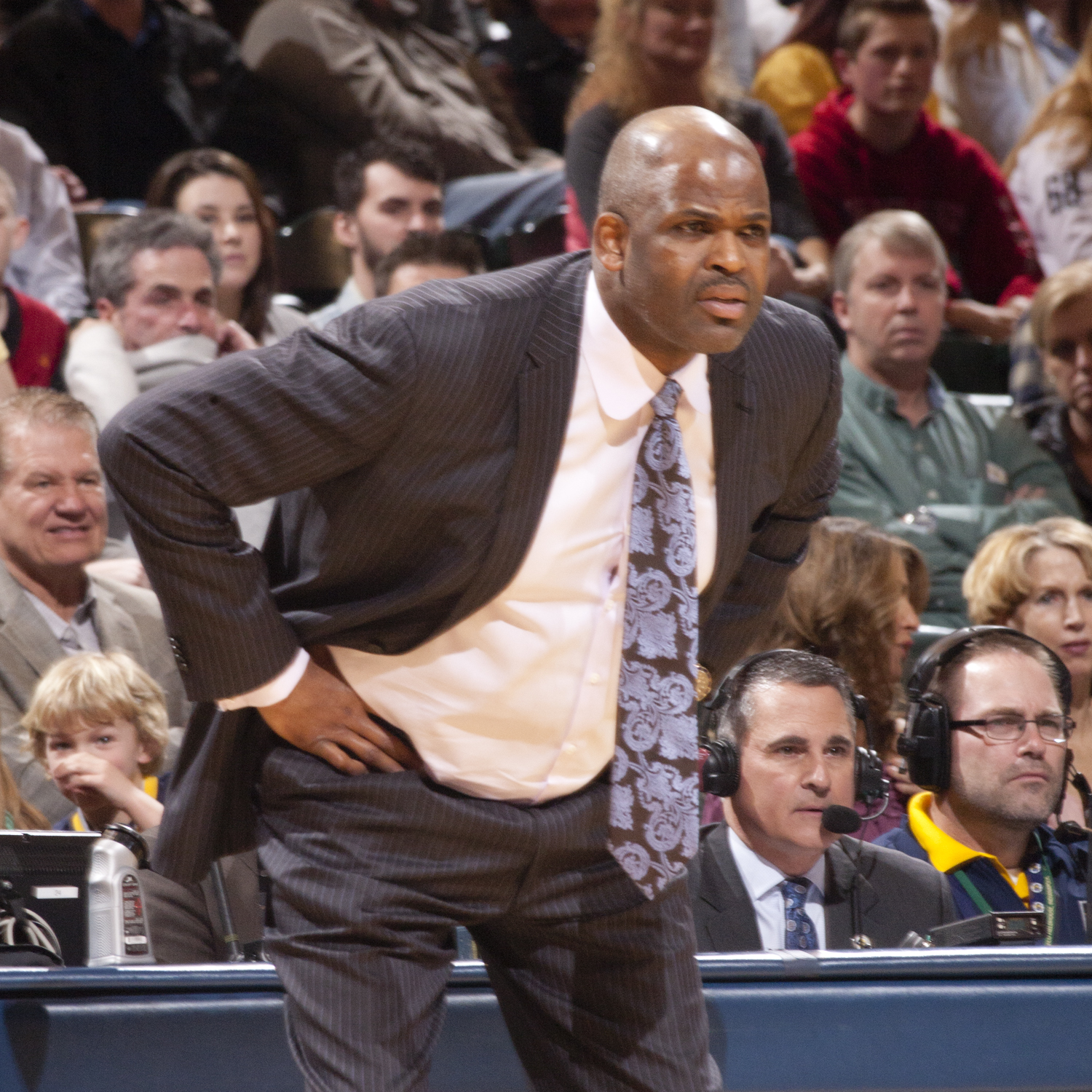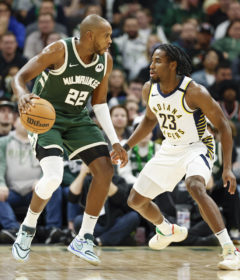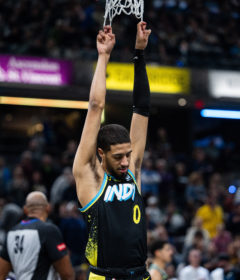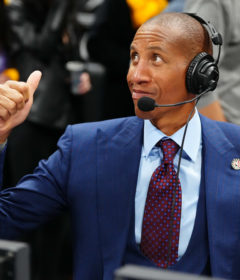Sorting out alternate endings to Pacers’ Game 5 heartbreaker

By CHRIS GOFF
Nate McMillan fell on his sword Wednesday night, implying that his Pacers, just prior to LeBron James’ game-winning shot, should have taken advantage of their foul to give.
Credit Indiana’s coach for accountability, but McMillan is being raked over the coals over what really should be seen as a non-issue.
Cleveland inbounded with 3 seconds left. If the Pacers were going to foul, it had to be in the first second or two, but nobody was close enough to James. That’s because James’ defender, Thaddeus Young, lost his balance while chasing James around before the inbounds pass.
Moreover, James moved fast on that final play, knowing Indiana might give a foul to disrupt it.
“They had a foul to give,” he told TNT’s Allie LaForce. “I wanted to go quick so they couldn’t give up that foul.”
There are a ton of things Indiana could have done differently in those final seconds, from doubling James to guarding the inbounder, but fouling intentionally to burn just a smidgen of time off the clock and force another inbounds play wasn’t a great percentage move considering who had the ball and how little time was on the clock.
James – whom Paul George once called “the smartest player in this league” – knows how to get continuation calls. I suspect that, had any Pacer tried to give a foul, James was prepared to immediately go up and make it be in the act of shooting.
Yes, I know what actually happened. Jeff Green hit James with a crisp pass outside the 3-point line. James turned, took two dribbles, shot over Young’s outstretched arm and sank a 3 to give the Cavs a 98-95 victory at Quicken Loans Arena and a 3-2 lead in this best-of-seven first-round series.
In the end, the night belonged to The King. With 44 points on just 24 shots, 10 rebounds and eight assists, James allowed the reigning Eastern Conference champs to overcome J.R. Smith not scoring at all, another rough outing from their bench and 48 percent shooting by the Pacers.
Let’s address another odd conversation, though. The Pacers were upset about the call that went Cleveland’s way on the play right before James’ winner, but people are saying the uncalled goaltend on Victor Oladipo’s shot ultimately doesn’t matter.
No, really. There is actual commentary and discussion about a missed call – one that robbed Indiana of two points with the score tied at 95 – being irrelevant.
Let’s get this out of the way first. The Pacers can point to plenty of other reasons they lost besides the referees. They committed 17 turnovers, endured Oladipo’s 2-for-15 nightmare from the field, were outscored by 15 in the third quarter and saw Myles Turner – who had been Indiana’s best player in the series – log only 21 minutes thanks to self-inflicted foul trouble.
Here’s another truth: the non-call on James’ crucial block, which sure looked like a goaltend, was vital and swung the game in a different direction.
There’s a big difference between being down two and being tied. We can’t assume that, if Indiana was ahead 97-95, James performs the finale of his magic act the same as he did when the score was even.
In the event of the Cavs trailing by two, their final shot is taken under far more pressure. If it fails, there would be no overtime. They would lose. In the situation where they were tied, if James missed, the Cavs still had a chance of winning in OT.
No wonder James said he “felt like a kid all over again just playing basketball at my house” on that last possession. Because of the goaltend that wasn’t, James had nothing to lose.
Oladipo let his feelings be known and criticized the officiating. In fairness to the refs, James is fairly famous for blocking layup attempts from behind, so that factor can’t be discounted in how they viewed the play.
So, what’s next?
We can safely call this series “evenly matched.” All three Cleveland victories occurred in nail-biting fashion. Through five games, Indiana actually has the better point differential with a composite score of 482-472. Each side has stolen a win on the other’s home court, and each has toiled under the anemic pace of this series. The teams are averaging just 93.4 possessions per game, easily the lowest total of any series this postseason.
Quantity of possessions has been remarkably even. The Cavs had a plus-6 advantage in offensive rebounds and turnovers in Game 5, but that only made them plus-4 for the series.
We should, however, give special mention to the free throw shooting. Cleveland was a spectacular 26-of-27 at the stripe Wednesday, while the Pacers hit 21-of-27, a five-point swing. For the series, the Cavs are winning that war. They own a 111-97 edge in free throws attempted and an 87-69 advantage in free throws made.
You can make a credible argument free-throw shooting accuracy has been a pivotal part of this series. The Pacers and Cavs shot identical marks in the regular season; Cleveland made 77.9 percent, Indiana 77.9 percent. The Pacers are making only 71.1 percent from the stripe in the series; compared to their regular-season average it has cost them seven points over the five games. The Cavs, in contrast, are hitting their regular-season number almost exactly.
The Pacers were shell-shocked after Game 5 and have to recover Friday at home or their Cinderella season will come to an end.
“We want it,” McMillan said. “We’ve got one more opportunity. We have to flush (Game 5) as soon as possible and get ourselves ready to play on Friday.”
The Cavs have had the upper hand since Indiana picked them apart in the series opener, and one must fairly wonder whether the sense of optimism that pervaded Indiana’s season is dormant now.
However, given how slim the margin has been between these two teams, one also suspects we won’t see this series end until Sunday.






